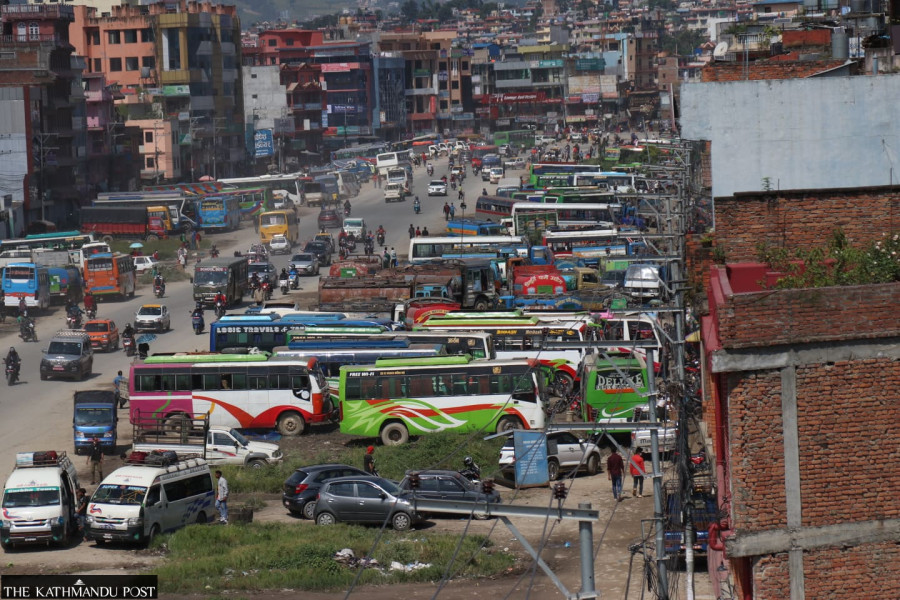National
Gear up for yet another hike in bus fares
As the government prepares to hike long-route bus fares by 11 percent, consumer rights activist decries plan. This will be the second increase in less than a year.
Anup Ojha
For the second time in less than a year, the government is planning to hike the bus fare for long routes. As plans are afoot to increase the fares by 11 percent, consumer rights activists have criticised the government for ignoring the interests of consumers.
After protests last week by transport entrepreneurs who threatened to stop operating the long route last week demanding revision in fares following the huge hike in fuel prices, the government is preparing to hike the fares, according to officials.
Transport operators have given the government until Thursday to revise the fares.
“Despite the fuel price hikes, it will be unwise to hike the fares because the consumers are already suffering from massive inflation. The government should instead be working to make public transport affordable for all,” said Jyoti Baniya, chairperson of the Forum for Consumers’ Rights Nepal.
“When it comes to public service, the state should not look at profit and loss. It is the state’s basic responsibility to make public services affordable,” he added.
Last year in mid-January the government had jacked up bus fares on inter-provincial routes by a sharp 28 percent.
Namaraj Ghimire, director general at the Department of Transport Management said that a committee formed to review bus fares has already prepared a report recommending adjustments. “On Tuesday, we will send the report to the ministry. If the ministry gives its nod, new fares will be implemented,” said Ghimire.
He said the adjustment to the fares will be made on the basis of the fuel price hikes over the past few months.
“We have developed a model for fare adjustment. If the fuel price comes down, then the bus operators will have to reduce the fares accordingly,” said Ghimire.
Baniya, however, disagrees with the government’s suggestion saying it would not be practical to adjust the fares every now and then. “Because transport fare hikes impact the entire economy, the government should be extra sensitive before making any revision,” said Baniya. He also said that the government should work to promote other modes of transportation to reduce the reliance on conventional fossil fuel-based transportation.
The cost of diesel has increased by 48 percent in the past year. The data of the Nepal Oil Corporation Limited show that last year on January 18, the cost of diesel was Rs 93 and coming to present day it has increased 20 times and has reached Rs 138 per litre.
Last week, on March 16, the Corporation had increased the per litre price of diesel to an all-time high of Rs143 from Rs138 and petrol to Rs150 from Rs155.
A BBC report on March 7 said that the petrol prices have hit another record high as oil and gas costs soared amid fears of a global economic shock from Russia’s invasion of Ukraine. It stated that oil jumped to $139 a barrel at one point, the highest level for almost 14 years.
“For weeks, we have been operating our buses at a loss, and many bus operators have garaged their buses owing to higher fuel costs and falling passenger numbers,” said Yogendra Karmacharya, president of the federation.
He said they had planned to halt services from Sunday, but postponed the plan after the government promised to revise the fares. “If there is no adjustment by Wednesday, bus operators will start protesting from Thursday,” said Karmacharya.




 9.6°C Kathmandu
9.6°C Kathmandu.jpg)














